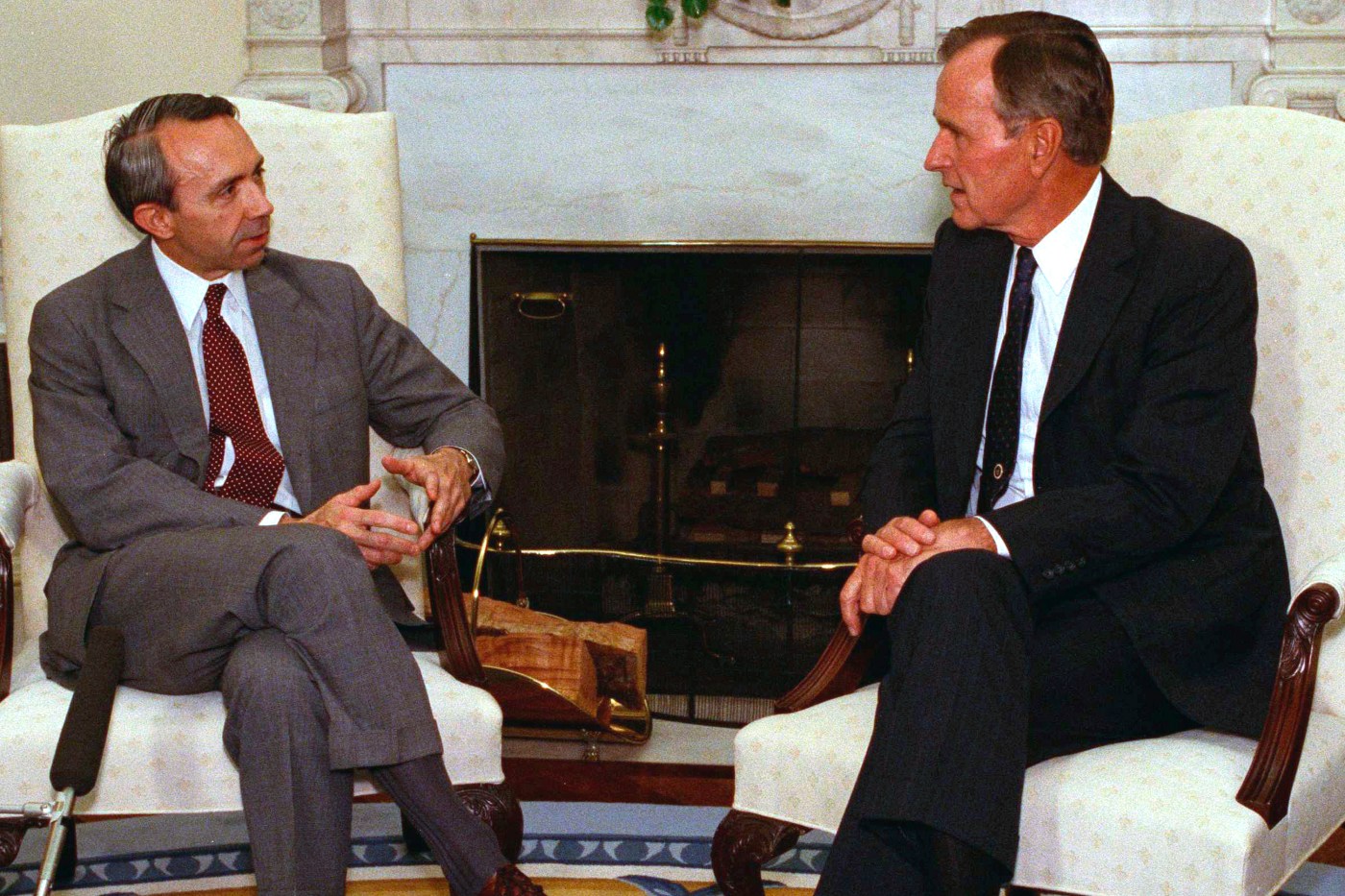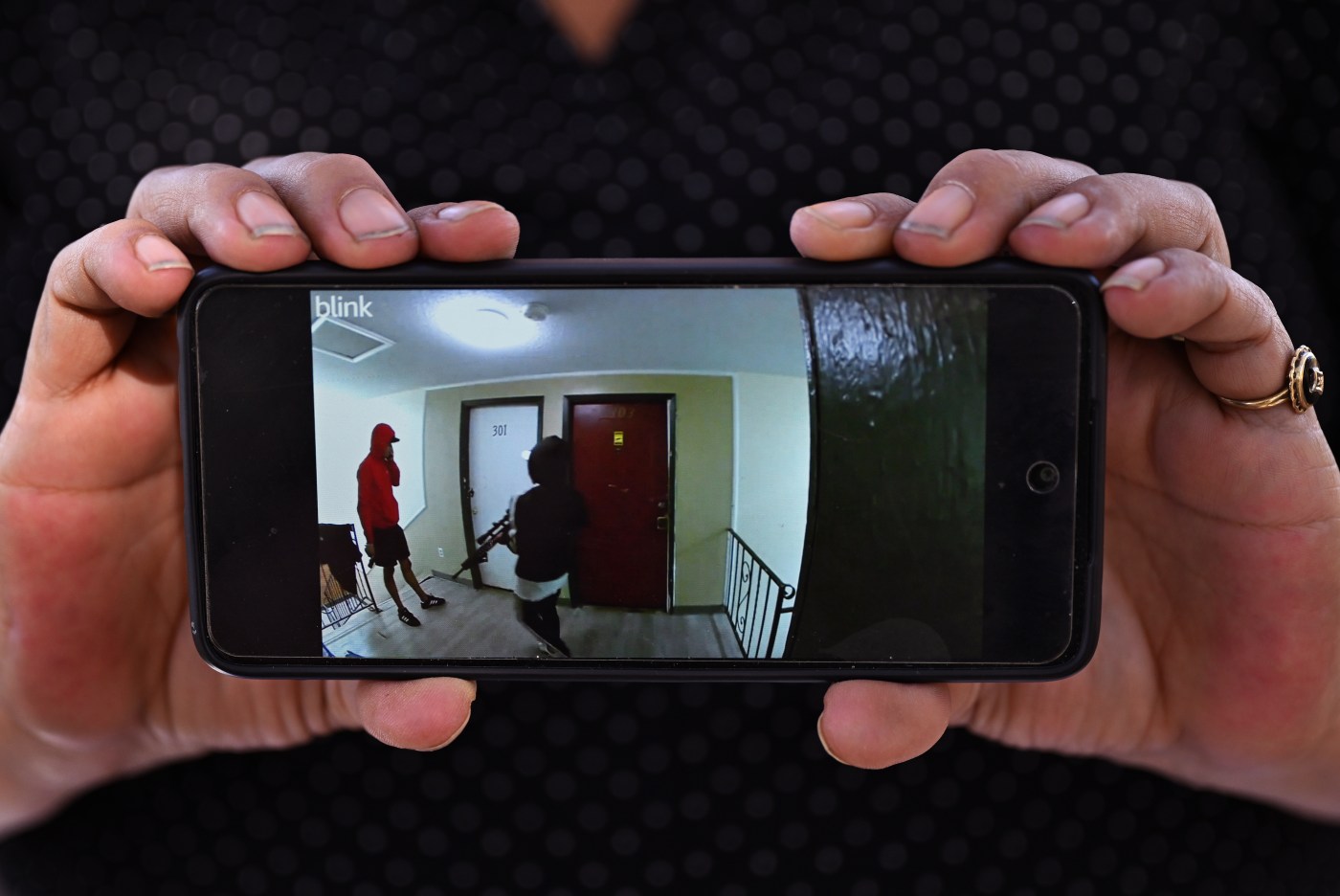“Dumbgerous,” a word coined by a 13-year-old friend, is a handy term for something both stupid and harmful. Not only should it be added to the English lexicon, Dumbgerous Awards should be bestowed on an annual basis. It’s only May, but there are strong contenders for 2025.
Last week, a divided Colorado Supreme Court decided to let a lawsuit by local government officials proceed against Suncor and ExxonMobil, accusing them of causing global warming and harming the city and county of Boulder. If the suit ultimately succeeds, it will raise the price of gasoline. That’s partly the purpose, an attorney for the plaintiffs admitted. It also sets a bad precedent.
In the words of the dissenting justices: “Boulder is not its own republic … it has absolutely no right to file claims that will both effectively regulate interstate air pollution and have more than an incidental effect on foreign affairs.” Courts have wisely dismissed similar suits in several states.
Besides, if Boulder can sue gas companies over CO2 emissions why should they stop there? Businesses that operate machinery or technology consume energy and release greenhouse gases. Drivers are guilty of the same, homeowners and renters, too. In fact, anyone breathing should pay up. Animals and the dead also emit CO2, so don’t let them off the hook either.
That’s not the only frivolous lawsuit being paid for by taxpayers. Democratic attorneys general, including our own, launched a lawsuit against President Trump’s temporary pause on new permits for wind turbines on federal land. Normally suits are dry reading but this one has melodramatic flair. For full effect read it aloud and hyperventilate a little. Trump is “jeopardize[ing] the continued development of a power source critical to the States’ economic vitality, energy mix, public health, and climate goals,” it frets. Sounds cataclysmic doesn’t it? The suit fails to mention the majority of windmills are on private, state, and local government land, not federal.
It’s hard to compete against lawfare for a Dumbgerous Award but state legislators did their best this session. House Bill 1277 could have been written by the satirists at The Onion. It would have forced gas stations to put climate change warnings on gas pumps. Sponsors said warning labels would inspire drivers to change their wicked ways. We can test that hypothesis. How many House members who voted for the bill then ran out and bought a $60,000 electric vehicle or suddenly started taking the bus? House Bill 1277 would do little more than raise the price of transportation when gas stations passed on the cost to comply. Fortunately the Senate killed the bill.
Not all bad bills died before adjournment, however. While the most onerous sections of HB 1312 were excised, the bill still, in the words of Senator Paul Lundeen, “creates a system where schools and state agencies become the arbiter of deeply personal family decisions. By mandating inclusive name policies, enforcing gender neutral dress codes, enlisting the (Colorado Civil Rights Division) to police speech, this bill risks transforming schools and courts into areas where the state overrides parental authority.” If this bill is signed into law, it’s only a matter of time before the courts schooled Democrats on the 1st Amendment. Constitution 101: the government cannot coerce speech.
Before we can award any of these nominees a Dumbgerous Award, however, we must consider an outstanding entry from a state university. The taxpayer subsidized University of Colorado Boulder and an abortion clinic planned to host a “Sex Ed Summer Camp” for incoming 5th through 8th grade students this July. Why teach 10 year olds to canoe and make s’mores when you can, according to the promotional materials, introduce them to “gender & sexuality, media related to sex, sexy feelings, and pleasure”?
After a little national outrage, the Boulder Valley Health Center canceled the camp. We probably haven’t seen the last of it, however. While every study says delaying sexual activity until emotional and physical maturity is the healthy way to go, targeting the young makes good business sense when grooming future clientele.
These are certainly not the only competitors for Dumbgerous Awards. There will be more. But with the sex camp called off, the legislature adjoined, and election season still a year out, the river of homegrown award-worthy ideas may slow to a trickle. But fear not, Congress and the Administration have already begun to take up the slack.
Krista Kafer is a Sunday columnist for The Denver Post.
Sign up for Sound Off to get a weekly roundup of our columns, editorials and more.
To send a letter to the editor about this article, submit online or check out our guidelines for how to submit by email or mail.
19 May, 2025 | Admin | No Comments
Denver City Council’s Suncor virtue signaling costs residents $300K (Letters)

Virtue signaling: City council costs residents $300K
Re: “City Council rejects $25M contract with Suncor,” May 7 news story
How arrogant and misguided is Councilwoman Shontel Lewis who said she would vote no on the asphalt contract because Suncor is a major contributor to ongoing environmental justice problems in North Denver. As if this has anything to do with getting our roads paved for a reasonable price.
The Commerce City refinery will make asphalt. It is what they do. Asphalt is a (small) percentage of every crude oil barrel. The crude oil barrel also includes other refinery products such as gasoline and jet fuel. Suncor’s crude oil comes from the tar sands in Canada, which are heavy oils and have higher residue (asphalt), and the local Denver-Julesburg Basin crude, which is a sweet, honey-like domestic crude. So, to get the valuable products like gasoline and jet fuel, the refinery will make asphalt.
Now, however, the residents of Denver get to pay an additional $300,000 over the life of the contract for the Denver City Council’s arrogance.
Bill Koch, Broomfield
The alarming threat of Medicaid cuts
Cutting Medicaid benefits for millions of Americans who are disabled, retired, caregivers, between jobs, or working but not making enough to afford other health care is cruel and unnecessary. It is not about saving money but increasing the gap between the rich and the poor. Many Americans will die or become homeless because of these cuts.
We need to keep opposing these attacks on our safety-net programs as loudly as we can.
Cheryl Kasson, Denver
To some of us just-getting-by families, it’s just another push down. Funding is cut to the people who need it the most. They rely on it to stay alive. Party affiliation means nothing when it comes to a cry for help from citizens. We’d all like to enjoy our lives and care for our children without additional burden.
This program should never be tampered with until you come up with something that would curb hospital costs and provide coverage that benefits humans equally.
Robert Auerbach, Centennial
Keep resources available to nurture our young talent
Re: “CU reporting that 54 research awards have been terminated or been halted,” May 8 news story
With great alarm, I read the May 2025 CU report that 54 research awards have been terminated or halted. America’s young adults, who are striving to develop careers and families for our future, are facing the greatest economic challenge in decades. Especially brutal are the thousands of DOGE and Trump-era cuts to tuition assistance and the slashing of internships and research grants in the science, medical and engineering fields.
I have encountered dozens of people who have informed me of canceled government funding sources that are demolishing career prospects for many who do not have family or other monetary safety nets.
Reaching back to the early 1970s, had I not had an engineering college co-op program job with U.S. Air Force at Wright Patterson Air Force Base providing funds for tuition and even my basic living needs, my long engineering career in nuclear and aerospace might well have been extinguished. Let’s get more tax contributions from the ultra-rich and not smash the formation of young talent for our future.
Ronald L. Puening, Centennial
Sign up for Sound Off to get a weekly roundup of our columns, editorials and more.
To send a letter to the editor about this article, submit online or check out our guidelines for how to submit by email or mail.
18 May, 2025 | Admin | No Comments
Due process “dismissed as the refrain of woke liberals” (Letters)

Due process “dismissed as the refrain of woke liberals”
Re: “Trump’s bid to free Tina Peters shows disrespect for due process,” May 11 commentary, and “Officials target habeas corpus” May 11 news story
I think columnist Krista Kafer sees quite clearly that the GOP is completely derailed. When I was in grade school, during conservative Cold War times, my teachers would lecture us on the contrast between the Soviet Bloc and our American system. Due process was always described to us as a pillar of the American way. We were protected from “the knock at the door,” they’d say to us kids. The government can’t make you simply disappear.
But that whole culture is absent in current conservatism. Due process is now dismissed as the refrain of woke liberals.
Trump has learned from the past. He’s not again sprinkled his cabinet with as many patriots (i.e., Mark Esper) as loyalists. The military brass, the intelligence services, and the DOJ are now curated exclusively to the right wing. We can reasonably anticipate the next phase. He’d like to expand the denial of due process to include full citizens.
Scott Newell, Denver
Blame sanctuary policies or immigration policies?
Re: “Trump’s suit against Colorado ‘sanctuary laws’ starts with a lie and only gets worse,” May 11 editorial
The Post’s editorial is an exercise in misdirection and missing the point. It defies common sense to claim that Colorado’s well-known status as a sanctuary state (who needs a sanctuary city when the state legislature will do it for you?) didn’t make us a preferred destination for immigrants coming to America illegally, whether criminals or not. Indeed, the “revisionist history” is yours, not the Trump administration’s.
Of course, once the damage is done and law enforcement has to find, arrest, and prosecute those who have harmed our cities and our state, they will do so. The contrary is not the claim being made by people frustrated with our state and city policies. Rather, it’s that law enforcement may not work to deport criminal illegal immigrants, thus allowing them to remain as predators among us.
But again, your editorial seems intentionally to miss the point: The burden of proof is on those who claim that sanctuary policies do not attract the people they are designed to shield. Of course they do, and of course some of those people will have bad intentions.
Ross Kaminsky, Denver
Bravo! Good for you! Well done on placing “sanctuary laws” in the proper context! For far too long the federal government has shirked its responsibility to establish a clear and effective immigration policy (and the means to effectuate it), choosing rather to blame the states and local municipalities for their refusal to act as the unofficial/official enforcement arm of their lame system, and in effect, imposing an unofficial and unfunded mandate. Hopefully, the feds will scrape together the political will to come up with a solution to their own self-inflicted problem.
Larry Ciferno, Denver
There is misplaced but formidable compassion for illegal immigrants in the USA, especially for ones who have woven themselves into the fabric of our society, economy and legal system. This allows for taking advantage of the game put in place by the former presidential administration, where due process restrictions were not placed at illegal entry but are now requiring the current presidential administration to observe constitutional protections to prevent anything remotely resembling a justifiable and expedited deportation response.
Too many citizens view immigration mostly in terms of the immigrants themselves and neglect the larger view of the net cost. Immigration is a tool to improve our country, and the legal process allows us to determine which applicants would most likely help in that regard. The previous presidential administration implemented a deliberate campaign to significantly increase the flow of illegal immigration. The motivations for this action are likely varied and certainly include the aforementioned misplaced compassion, but it ran largely afoul of existing law.
How is it that a previous president was allowed to ignore existing law with an open-door policy that overtly invited illegal immigration, while the current president is held to the letter of the law and being forced to give everyone here illegally their day in court?
Douglass Croot, Highlands Ranch
The real economics of oil and gas in Colorado
Re: “Oil and gas: Industry rebuffed by local boards,” May 11 news story
Thanks to The Denver Post for covering the efforts of local lawmakers to represent their constituents and stand up to oil and gas. It’s telling to read the industry response from Lynn Granger, who refers to democratic decision-making as “political grandstanding.”
The Post is quick to remind readers of the $2 billion in tax revenue and 303,000 jobs from Colorado Oil and Gas Association statistics. But please also remind readers of just how profitable it is to subject Coloradans to a toxic industry: Suncor posted over $22 billion in profits for 2024. The Denver Business Journal reports that the top 5 oil and gas companies headquartered in the Denver metro area made $39.1 billion in revenue for 2023. So the idea that we are losing out economically pales in comparison to what this industry makes off our backs.
Christina Foust, Denver
Some say derangement, some say denial
Re: “Trump derangement syndrome in the opinion pages,” May 11 letter to the editor
The letter writer must be squinting through rose-colored glasses. Even if I liked every one of his policies, President Donald Trump’s actions are those of a 10-year-old, and a revengeful, hateful, greedy person is enough of a disqualifier for me to say no thanks. A Dem doing this would get the same response from me. If a Dem had been doing these same things as Trump, there would be conservatives with pitchforks and torches in the streets. Remember when former President Barack Obama was criticized for wearing a brown suit? Ah, for the good old days when we only had to worry about fashion in the White House.
Mark Risner, Englewood
The author suggested that all of the negative Trump letters in the Open Forum came from people who suffered from TDS (Trump Derangement Syndrome). My concern is that he and his MAGA devotees suffer from a much more serious illness. The Truth Denial Syndrome! My hope is that a cure is very quickly found!
Theo Davis, Phoenix
Regarding the letter writer’s comments on The Post’s seemingly anti-Trump position, the writer must not be paying much attention to what this corrupt administration is doing. Ignoring court orders, undermining Congress, creating chaos in the market and illegally firing federal employees. Of course, inflation would go down (for now), of course gas prices will fluctuate (price of crude) and, of course, egg prices would eventually come down (although still around $8 a dozen), but these things have nothing to do with Trump or his policies. Listening only to Trump’s lies (like gas at $1.98 a gallon) most likely gives his supporters reason to hold him in high regard. They are deaf and blind to the truth, refusing to believe anyone who speaks unfavorably of him. It’s unfortunate that the media, which we so desperately need, is reduced to “fake news” or called biased because of Trump’s lies.
Valorie Manzi, Lakewood
Donald Trump has become so confident and so brazen that he does not even try to hide the fact that he is taking bribes (cryptocurrency scheme) and committing extortion (law firms) every single day, yet his MAGAs keep writing into this paper and contacting other media outlets accusing them of TDS and biased reporting. While I understand the effort to present differing viewpoints, I don’t feel it is necessary to publish these letters, the writers of which are not capable of seeing what is right in front of them.
Rochelle Davis, Denver
Cooking traditions: Feeling wrapped up in a mother’s love
Re: “A mother’s love, a family’s traditions,” May 11 features commentary
Thank you for your article in Sunday’s Denver Post. I share many of your family experiences, especially those around food. My daughter organized a family reunion in January, centering around a pierogi party and recreating the Wigilia (Christmas Eve) meal.
What a pleasure to read this Mother’s Day.
Dziękuję bardzo!
Diana Sadighi, Boulder
Thank you for a wonderful piece on your mom and Polish traditions. I’m 80 years old, so I can remember the old days and simpler times. I grew up in a Polish neighborhood (Kosciusko Street, etc.) with a very connected Polish family. We did all the same things as in your piece.
Kathleen Skrynski Morrison, Castle Rock
Rooting against the Valor Christian model
Re: “Valor Christian grapples with discontent,” May 11 sports story
I can see Valor Christian High School from my front porch. Well, almost. And to be honest, I take some pleasure in every one of their losses. Among other reasons, for years the football team pummeled opponents that didn’t have the widespread “recruiting” pool that private Christian high schools here in Colorado and around the country enjoy.
The article presents the athletic department as a near-professional atmosphere of extraordinarily high-ended achievement that somehow invokes God as an assistant coach.
“God has great plans for our football team”? It’s more likely that God has better things to do than to get involved with the X’s and O’s at a school positioned behind a grocery store.
And another thing, Valor pushed out two gay teachers, which seemed, what? Rather non-Christian.
Did I smile when I saw the outcome of the Valor-Mountain Vista football game on Oct. 4? Ear to ear.
What does it say? “Whoever brings trouble on their family will inherit the wind.”
Craig Marshall Smith, Highlands Ranch
Sign up for Sound Off to get a weekly roundup of our columns, editorials and more.
To send a letter to the editor about this article, submit online or check out our guidelines for how to submit by email or mail.
16 May, 2025 | Admin | No Comments
Polis’ Senate Bill 5 veto maintains the Labor Peace Act, until compromise can be met (Editorial)

Colorado lawmakers vacated the state Capitol more than a week ago, having done extraordinary bipartisan work with the state’s tightening budget. But Gov. Jared Polis’ vetoes have kept some of the Democrats’ more ambitious goals in check.
On Friday, Polis struck down an attempt to make Colorado more union-friendly, a bill that would have undone decades of compromise between big businesses and big unions in this state. The veto preserved Colorado’s middle-of-the-road Labor Peace Act, but Polis’ decision is one of the most controversial vetoes in recent history. We had joined Polis in calling for a compromise that respected the importance of organized labor and also the importance of keeping union dues and fees in check. Unfortunately, a compromise could not be found, and Polis was right to veto Senate Bill 5.
The entire process of Senate Bill 5 proves that Colorado’s functioning legislative system is good for this state. While Congress refuses to act — on immigration, on the national debt and deficit, on any number of critical measures — Colorado’s General Assembly is having healthy debates and nuanced policy conversations.
The disagreement on Senate Bill 5 came down to a few percentage points, illustrating just how important compromise was. Instead, the issue will head to the ballot box. Colorado voters will likely see competing measures on the ballot this November, asking whether to make the state more pro-business and more pro-union.
Also, in sharp contrast to Congress, Colorado lawmakers were able to balance the budget, despite having to return millions of dollars collected to taxpayers through the Taxpayer’s Bill of Rights refunds. We were disappointed to see that after cutting proposed spending levels, lawmakers dipped into the state’s Unclaimed Property Trust Fund to pay for unfunded projects. While the projects were worthy — funding for safety-net hospitals and fire districts — the move continues a dangerous precedent. Already, the state owes about $700 million to the trust — an unfunded liability.
Polis said he was comfortable signing the two bills because the additional amount — $100 million — is relatively small and the claims on the unclaimed property fund are predictable and steady, meaning it is highly unlikely for the fund to become insolvent in the future. This would be one place we would have liked to see Polis use his veto.
Lawmakers must stop pulling from this fund, unless it is to make loans that are low-risk and present a return on investment to begin paying off the liability. One such proposal was killed this year and would have given homeowners low-interest loans for solar panels.
Aside from our wish for vetoes on those spending bills, we were disappointed in Polis’ veto of Senate Bill 86. The veto rejects reasonable regulation of social media companies, instead allowing Facebook, X, Snapchat, TikTok and others to continue their failure to regulate users who engage in illegal activity like selling drugs or sharing child pornography. The Senate voted to override the veto but the effort to revive Senate Bill 86 died in the House.
The governor was also right to strike down an ill-advised attempt to slow public records access for everyone except “real journalists.”
Colorado lawmakers and Gov. Jared Polis had a good, albeit imperfect, year.
Sign up for Sound Off to get a weekly roundup of our columns, editorials and more.
To send a letter to the editor about this article, submit online or check out our guidelines for how to submit by email or mail.
15 May, 2025 | Admin | No Comments
Valor Christian isn’t the only Colorado high school lost to ‘gladiator culture’ (Editorial)

Valor Christian’s former head football coach is the canary in the coal mine for Colorado high school sports.
Bret McGatlin, pushed out after 32 months with a winning record, issued a strong statement read to concerned parents at a February meeting with school leaders. The statement decries the gladiator culture in high school sports.
“At the heart of the issue is a leadership style characterized by a culture of fear, comparison, and uncertainty. Coaches have felt unsupported and undervalued, leading to an environment where fear and anxiety replace passion and purpose. I can say without hesitation that I would not have resigned if not for this leadership dynamic,” McGatlin wrote, as reported by The Denver Post’s Kyle Newman on Sunday.
Valor Christian athletics faces turmoil, discontent in wake of football coach’s resignation
/*! This file is auto-generated */!function(d,l){“use strict”;l.querySelector&&d.addEventListener&&”undefined”!=typeof URL&&(d.wp=d.wp||{},d.wp.receiveEmbedMessage||(d.wp.receiveEmbedMessage=function(e){var t=e.data;if((t||t.secret||t.message||t.value)&&!/[^a-zA-Z0-9]/.test(t.secret)){for(var s,r,n,a=l.querySelectorAll(‘iframe[data-secret=”‘+t.secret+'”]’),o=l.querySelectorAll(‘blockquote[data-secret=”‘+t.secret+'”]’),c=new RegExp(“^https?:$”,”i”),i=0;i<o.length;i++)o[i].style.display="none";for(i=0;i<a.length;i++)s=a[i],e.source===s.contentWindow&&(s.removeAttribute("style"),"height"===t.message?(1e3<(r=parseInt(t.value,10))?r=1e3:~~r<200&&(r=200),s.height=r):"link"===t.message&&(r=new URL(s.getAttribute("src")),n=new URL(t.value),c.test(n.protocol))&&n.host===r.host&&l.activeElement===s&&(d.top.location.href=t.value))}},d.addEventListener("message",d.wp.receiveEmbedMessage,!1),l.addEventListener("DOMContentLoaded",function(){for(var e,t,s=l.querySelectorAll("iframe.wp-embedded-content"),r=0;r<s.length;r++)(t=(e=s[r]).getAttribute("data-secret"))||(t=Math.random().toString(36).substring(2,12),e.src+="#?secret="+t,e.setAttribute("data-secret",t)),e.contentWindow.postMessage({message:"ready",secret:t},"*")},!1)))}(window,document);
We want Colorado to have world-class athletics departments for our students. Programs should push youth to excel not only in sport but in life. Programs should help students perform at their highest potential in the classroom and on the field. We say yes to 5 a.m. weight lifting sessions and two-a-day practices. Yes, build programs with rich traditions of team dinners and booster support. Leave behind the screaming and belittling behaviors that breed unsafe environments for students.
Whether it’s elite private schools using tuition waivers to recruit the best players in the state or our outstanding public schools competing head to head on the same field, one thing Coloradans cannot tolerate is toxic environments that do more harm than good to student athletes.
Parents and coaches from Valor, many of whom spoke with Newman only on the condition of anonymity, are right to speak out if they feel something is broken at Valor.
We do not pretend to know how to walk the line between sports excellence and extremism, but we also know that many high school coaches, athletic directors, and school leaders maintain the right balance. And the critical thing to remember is that young teenagers would benefit more from a program that erred on the side of not pushing hard enough than one that pushes too hard.
Statistically, few Coloradans go on to play college sports, about 6% of all high school athletes, and even fewer do so with scholarships. According to statistics from the National Federation of State High School Associations (NFHS), only 2% of high school student-athletes receive college scholarships for their freshman year. Division I and II schools provide about $2.7 billion in athletics scholarships annually to 150,000 students. While another 180,000 students play for Division III schools without scholarships.
Beyond that only a handful of athletes – 2% of college athletes — go on to play a professional sport.
High school sports exist to serve the remaining 94% of students who will not play in college. Losing sight of that is what leads to toxic programs that are filled with drama and dissatisfaction. While adults quibble and argue over how to improve the program to win a few more games and a few more championships, it is the students who suffer.
Valor’s assistant coach Darren Krein, who also resigned recently, compared his experience as a coach in the National Football League to his time working at Valor.
“In the 20-plus years I’ve been a player and coach in the NFL — and it’s a rough situation there. … I’ve never been treated as bad in the NFL as I was treated here,” he said. Krein made the statement to parents in the community meeting and did not talk to The Post for the Sunday story.
The benefits of high school sports are immeasurable. Students get many of those benefits whether they are from a tiny school on the eastern plains competing to defeat a local rival in volleyball or vying for the 6A football state title under the bright lights at Canvas Stadium.
No student benefits from parents who blame coaches and staff for hard losses, or worse, who scream and yell at coaches like spoiled children on the sidelines. Unfortunately, we are not shocked by reports of such behavior from Valor parents, and all schools and club sports programs need to look at how to help parents and athletes adopt a healthier relationship with competition.
High school athletic departments do not become poison pits overnight or all on their own. Blame can be spread through school and district culture, and to state leaders. The solution will take years of reform, and we think it must start at the top with the Colorado High School Activities Association doubling down on its mission of creating a “positive and equitable environment” for all students in this state.
Colorado students deserve better than what Valor and other high schools lost to the gladiator ethos are serving up at the moment.
Sign up for Sound Off to get a weekly roundup of our columns, editorials and more.
To send a letter to the editor about this article, submit online or check out our guidelines for how to submit by email or mail.
14 May, 2025 | Admin | No Comments
Rockies fire the wrong people after a record-breaking year in futility (Letters)

Once again, the Rockies are making the wrong personnel decisions
Re: “Bud Black fired,” May 12 news story
When Bryce Harper called the Rockies a “loser … organization” two years ago, he hit it on the head. With one-quarter of the season over, they are on pace to lose 130 games this year in what will likely be a record-breaking year for futility.
More frustrating is what ownership chooses to do about it: Fire a hitting coach a month ago, then, Sunday, fire manager Bud Black and bench coach Mike Redmond. These three guys had nothing to do with assembling the AAA-caliber team that takes the field dressed as a major league team.
That distinction belongs to one person and only one person, Bill Schmidt. Since 2007 he has been in charge of scouting and since 2021 he has been the general manager responsible for assembling a competitive team. Bud Black can’t make hitters hit or pitchers throw better. He has to do his best with the hand he is dealt. That hand is controlled by Schmidt and Schmidt alone.
All teams deal with injuries and the presumed depth in an organization means replacements should be able to step up. Not for the Rockies though as the caliber of their players up and down the organization is as poor as it gets. Who selected, drafted and traded for these players? Bill Schmidt. But since he’s part of the old boys’ network with the owners, his utter ineptitude gets a pass, year after year.
Every Rockies fan should boycott home games unless Schmidt is fired. Or ownership should do the right thing and lower ticket prices to prices paid at AAA parks around the country.
J.Y. Kang, Denver
OK, Bud Black and Mike Redmond were fired.
Now, how about selling the team to Stan Kroenke (who won a Stanley Cup with the Avalanche and an NBA title with the Nuggets) and hiring Theo Epstein as GM (who won World Series titles with the Chicago Cubs and the Boston Red Sox)?
Mike Filion, Lakewood
No lie: Trump administration, Pentagon removing library books
Re: “Rhetoric about Trump is over-the-top lies,” May 10 letter to the editor, and “Pentagon directs military to pull some library books,” May 10 news story
The letter writer attacks Hashim Coates for writing that Trump is a “white nationalist” whose administration is “determined to erase our history (and) silence our voices.” The letter writer claims that statement is part of a smear campaign of “inflammatory rhetoric and lies” against Trump.
Really? In the same paper, there is a report that Trump’s defense secretary has ordered the entire military to remove and review all library books that address “diversity, anti-racism or gender issues.” The Civil War was an anti-racism campaign.
To strip libraries of anti-racist books is a clear attempt to erase history and silence voices. If anyone is lying, it is those who deny book banning or claim it is not an attempt to erase history.
Ray Harlan, Denver
Re: May 10 “Today in History”
It was interesting to see the above report on the Trump administration to rid all library books that address diversity, anti-racism or gender issues by May 21 at military academies. This, in the same paper on the “Day in History” when in 1933 book burnings were held in Germany targeting authors whose ideologies were in conflict with Nazism. When will all Americans see what’s occurring in our country?
Marcia Murphy, Centennial
Sign up for Sound Off to get a weekly roundup of our columns, editorials and more.
To send a letter to the editor about this article, submit online or check out our guidelines for how to submit by email or mail.
13 May, 2025 | Admin | No Comments
Idaho farmers (and our small health products company) will struggle even with Trump’s 30% tariff rate (Opinion)

Unless revoked or substantially reduced from the newly negotiated 30% for 90 days, President Donald Trump’s China tariff will still wipe out the investments made in our small family business and kill our manufacturing plant, here in Boise. When I talk to my friends and neighbors about the continuing uncertainty, I hear similar expressions of frustration about the impact of tariffs on American businesses.
For decades, my husband has specialized in producing high-quality health products, from protein or energy powders to supplements with vitamins and custom ingredients. We sold our products in the United States, but as the market became saturated, we exported to Poland, Brazil, Thailand and Australia. Margins were tight, but we paid above-average wages to the four employees we depend on.
A few weeks ago, a Chinese company requested products from us that it was unable to make. Despite the trade war, many Chinese consumers prefer American foods and supplements because they view them as superior in quality. But Trump’s ever-changing tariffs killed the idea — 145% tariff coming in, 125% tariff when exported.
That wiped out the profit we needed and seemed certain to put us out of business.
Agriculture in Idaho now faces similar problems of survival, especially because of tariff uncertainty. Economist Brett Wilder of the University of Idaho told Boise State Public Radio: “We’re in this window where people are deciding what crops they’re going to plant. People have to make that decision right now and live with that decision through the rest of the year, even if something changes next week.”
Idaho ranks third in the United States in dairy production and grows two-thirds of sweet corn seed worldwide, along with potatoes, wheat — 50% of which is exported — onions, food trout and barley. USDA data reported by the Idaho Farm Bureau Federation show that from 2016 to 2019, Idaho’s agricultural exports grew each year.
But in 2018, Trump added tariffs for China, and China reduced its purchases of American soybeans, corn, and pork, mostly grown in the Midwest. Many farmers lost their land, while others received some of the $23 billion in subsidies that the first Trump administration doled out, courtesy of taxpayers like you and me.
But ask any farmer, and they’ll tell you they’d rather grow food than take welfare.
It’s been hard to keep track of which tariffs are on and which are off, but Trump has eased many tariffs from most countries, including Mexico and Canada, for 90 days. Yet he initially increased tariffs on most Chinese products, causing China to retaliate. Negotiations resulted in both countries reducing their escallation tariffs to 30% and 10% respectively. But business with China won’t be rational again until the trade war ends.
Even though Mexico and Canada receive the greatest share of Idaho’s farm products, in 2022 China accounted for 8% of Idaho’s agricultural exports, or $231.2 million. Our biggest ag export to China is whey from Idaho’s dairy farms. These new tariffs will hurt.
“The Farm Bureau supports the goals of security and ensuring fair trade, but farmers and rural communities often bear the brunt of tariffs and tariff retaliation,” said Sean Ellis, spokesman for the Idaho Farm Bureau Federation. “We’re hopeful President Trump can limit trade disruptions, and at the very least, make sure farmers who are already operating on thin margins aren’t caught in the crosshairs.”
President Trump has offered varying justifications for imposing tariffs on some 90 countries around the world, now “paused,” but his basic explanation is that they will “bring manufacturing back home.” That will take time. Meanwhile, the world economy has become less stable, and predictions are for much higher prices here at home. I am afraid that from cars to appliances, we will all be shocked at how much more everything will cost.
Meanwhile, I’ve been calling and writing my Idaho members of Congress: Senators Jim Risch and Mike Crapo, and Congressman Mike Simpson, all Republicans. I ask them to stand up for my family, other Idaho families, and our farmers.
As for my family, without our Idaho-based manufacturing company, three generations of my family will be scrambling to keep our homes. It’s a blow, and it’s no joke to say that many businesspeople are feeling what I can only call “tariffied.”
Crista V. Worthy is a contributor to Writers on the Range, writersontherange.org, an independent nonprofit dedicated to spurring lively conversation about the West. She writes in Idaho.
Sign up for Sound Off to get a weekly roundup of our columns, editorials and more.
To send a letter to the editor about this article, submit online or check out our guidelines for how to submit by email or mail.
12 May, 2025 | Admin | No Comments
Justice Souter, a humble public servant, skipped the speaking engagements and tours that made his colleagues “pop culture” stars (Opinion)

This week, the US Supreme Court announced the passing of Justice David Souter, who served on the Court from 1990 to 2009, where he wrote landmark opinions on a wide range of issues, including the separation of church and state, campaign finance reform, abortion rights, and pleading standards in civil cases. I had the good fortune of serving as his law clerk from 2006 to 2007, at the height of his powers.
Justice Souter embodied the highest ideals of civil service. Appointed to the U.S. Supreme Court in 1990 by President George H.W. Bush, he immediately established himself as one of the leading voices on the Court. He was an independent thinker not afraid to make decisions that defied the expectations of the political party that appointed him, especially as the values of his party changed around him over the years. A self-described “common law” judge, he placed special emphasis on the facts of the case, perhaps because he was the only member of the Rehnquist Court who had previously served as a trial judge.
Despite almost always being the smartest in any room, Souter was invariably the most humble. He treated his law clerks as if they were his law partners, always welcoming them to challenge his thinking. He knew the names and personal backgrounds of every employee of the Court, right down to the guards and elevator operators. On most weekends, he came into the office, dressed in a three-piece suit, and as he strode toward his chambers, he greeted each staffer and asked about their various family members by name.
More than any of his peers, Justice Souter avoided the spotlight and disliked the Washington, D.C., scene, preferring to return to his beloved New Hampshire. When he stepped down from the Court at age 69 in 2009, he did something virtually unprecedented: he went on to hear cases for more than a decade in the federal court of appeals in Boston, meaning his opinions were subject to the review of his former colleagues. Souter just loved being a judge, and for him, it was never about seeking the limelight.
To say Justice Souter was a throwback would be an understatement. He drafted opinions in longhand, without the use of a computer or cell phone. When he needed to be reached for a vote during the summer months, federal agents put a Post-it note on his front door in New Hampshire reminding him to dial in. I once summoned the courage to ask him whether he might one day consider using email. He replied that he might — depending on “the rising cost of postage stamps.”
Justice Souter’s impeccable integrity and his conception of public service also stood out. At a time when it was not uncommon for his peers to travel across Europe during the summers to give paid lectures, cultivating their growing reputations as pop culture celebrities, Justice Souter took the opposite approach, always keeping a low profile and refusing to spend taxpayer money on anything he didn’t need to. He routinely wrote a check to the U.S. Treasury to repay American taxpayers for the portion of the Poland Spring water that he estimated he had consumed for personal purposes during his after-work jogging outings.
Souter never took himself too seriously. In the Grokster case, he wrote for the majority on the topic of intellectual property in the context of file sharing. He asked his law clerks to recommend an artist he could reference in his opinion. The artist we chose encapsulated our view of the boss: Modest Mouse.
As modest as a mouse but as strong and intellectually self-confident as a lion, we will never forget the example of civil service that he set.
Bryan Leach, CEO of Ibotta headquartered in Denver, served as a law clerk to Justice Souter during the October Term 2006.
Sign up for Sound Off to get a weekly roundup of our columns, editorials and more.
To send a letter to the editor about this article, submit online or check out our guidelines for how to submit by email or mail.
8 May, 2025 | Admin | No Comments
Trump’s suit against Colorado “sanctuary laws” starts with a lie and only gets worse (Editorial)

The U.S. Department of Justice’s lawsuit to end “sanctuary laws” in Colorado and Denver begins with a lie that undermines every other argument in the overwrought complaint.
“At the end of last year, the nation was shocked by images and videos of members of Tren de Aragua seizing control of apartment complexes in Aurora, Colorado,” wrote Yaakov M. Roth, acting assistant attorney general for the DOJ’s Civil Division. “It is the direct byproduct of the sanctuary policies pushed by the State of Colorado.”
Coloradans know better than to believe that revisionist history, and the case Roth is referencing is the perfect example of how law enforcement in this state partnered successfully with federal officials to catch the criminals in the video. Two were in custody days after police were called to the scene of the fatal shooting.
Sanctuary policies did not hinder the successful apprehension of five of the six men shown brandishing weapons outside an Edge of Lowry apartment and the “sanctuary” policies do not prevent or even slow good law enforcement work.
Rather the laws keep local law enforcement from doing work that would only distract from catching criminals — checking for citizenship, visas, and work permits. President Donald Trump and the Department of Justice are trying to tear down sanctuary policies so they can use local law enforcement to conduct mass deportations — the rounding up of millions of residents whose only crime is immigration related.
Roth is clearly confused about the important distinction between dangerous criminals and hard-working neighbors, but that’s no surprise. Roth was recruited from what Bloomberg Law called a “Trump-aligned” law firm, and Trump ran for office this year, promising to deport 11 million people.
Tren de Aragua got a foothold in Aurora, not because of Colorado’s policies, but because of a refugee crisis in Venezuela that has caused an estimated 8 million people to flee the country in search of food, medicine and safety from gang violence. And yes, some gang members used the exodus to sneak into America.
Now, Trump and the Department of Justice are using the refugee crisis and subsequent illegal immigration influx as a pretext to deport anyone and everyone without legal status. It’s a goal they cannot achieve without police, deputies and troopers helping in the roundup.
Colorado law and specifically Denver Municipal Code Sections 28-250 to 253 will keep law enforcement from tearing communities asunder at the behest of the president.
Denver’s ordinance prevents the city from using funds or resources to assist in the enforcement of federal immigration laws but it also includes key provisions to make sure that police and deputies are working hand in hand with all federal agents to catch criminals. The city code is abundantly clear: it does not prohibit criminal investigation collaboration but only work relating to “alleged violations of the civil provisions of federal immigration laws.”
Denver police can assist federal officials targeting violent gang members operating a chop shop, but they can not go door to door in an apartment complex asking people to show their papers without a warrant for someone specific.
Denver Police can and should work with ICE to apprehend Tren de Aragua gang members but shouldn’t ask people they pull over for broken taillights for proof of citizenship.
One section of the law prohibits federal immigration officials from entering secure areas of the city or county jail or other city-owned property without a warrant. We’ve addressed this portion of the law in a previous editorial, and think revision is necessary to allow ICE officials into facilities to detain people who have deportation orders or a court-ordered detainer.
None of these provisions would have prevented Denver law enforcement from pursuing the criminals in the Edge of Lowry complex, and Colorado law certainly didn’t delay Aurora’s good police work. Two days after the shooting, Aurora Police had already apprehended two of the six suspects on investigation of first-degree burglary and menacing with a firearm. Federal immigration officials in New York City used Aurora’s arrest warrants and investigation to arrest three more of suspects. Leaving only one suspect unaccounted for.
As Aurora Police Chief Todd Chamberlain told The Denver Post as it pursued the criminals: “Like most major cities, Aurora deals with crime issues and it deals with gang activity … But we are not by any means overwhelmed by that issue, we are not by any means overtaken by Venezuelan gangs, TdA or any other gang.”
The lawsuit from the Department of Justice is not about Tren de Aragua gang members or the terrifying crimes they have committed. The lawsuit is about apprehending parents and grandparents, construction workers and Dreamers, homeowners and renters, students and fruit pickers.
Trump is looking to fulfill his campaign promise. He should quit obfuscating his intent and be honest that sanctuary policies are standing in the way of a massive police state needed to round up millions. Reports indicate that Trump is increasingly frustrated. His efforts at mass deportation have been hampered at every turn by judges who bravely uphold due process in the face of personal attacks. We are inspired by the legal advocates and neighbors who inform immigrants of their rights even as ICE rolls into a neighborhood with armored cars.
Trump won the election, but just because millions of Americans support his call for mass deportation doesn’t make the president’s plans morally right. This lawsuit is one step in his effort to steamroll America’s legal system and Colorado laws.
Sign up for Sound Off to get a weekly roundup of our columns, editorials and more.
To send a letter to the editor about this article, submit online or check out our guidelines for how to submit by email or mail.
5 May, 2025 | Admin | No Comments
Many Coloradans would lose Medicaid under Trump’s proposed expansion cuts (Editorial)

Colorado’s clinics and hospitals are already feeling the strain of losing half a million patients from the post-COVID Medicaid wind-down, and now Congress is threatening to slash and burn the nation’s safety-net health insurance.
We’ve been down this road before, about a dozen times since Obamacare first became law in 2010. The Affordable Care Act dramatically increased the number of people who would qualify for Medicaid health insurance, which is funded by a combination of state and federal dollars. That expansion was expensive, but it helped reduce uncompensated care costs that were stressing the private health care and insurance systems.
Remember when Sen. John McCain saved the Affordable Care Act’s Medicaid expansion with a dramatic thumbs-down vote on the Senate floor that rejected President Donald Trump’s attempt at a skinny repeal? Well, McCain isn’t in the Senate anymore, and now Republicans are trying (again) to roll back the Medicaid expansion.
That is bad news for all Coloradans, not just those on the Medicaid bubble who are making more than the bottom threshold for Medicaid (about 35% of the federal poverty level) but less than the expansion threshold (138% of the federal poverty level).
Those already living on the bubble would likely lose their insurance immediately if Congress were to dramatically slash funding to states for Medicaid programs. And the program also wouldn’t be available to those who suffer a job loss in the future. Medicaid isn’t just for those who find themselves in chronic poverty. Our health care system is so broken that private insurance is cost-prohibitive for most Americans unless their employer is picking up much of the tab, and incentives on the Obamacare exchanges rarely are enough to fill the gap. Job loss is stressful. Add in the cost of intermediary health insurance, and savings, if they exist, can get depleted rapidly. Going uninsured is an unacceptable risk for most, as a single hospital stay could cost tens of thousands of dollars.
The popular refrain from supporters of ending the expansion is that able-bodied, single individuals shouldn’t be eligible for government-funded health care. But the KFF (formerly the Kaiser Family Foundation) found that data from the Census Bureau shows that only 8% of single people aren’t working, and we’re pretty certain that traumatic injuries, cancer, and liver failure aren’t solely reserved for people with children and spouses.
For reference, 138% of the federal poverty level is about $21,000 for individuals and $36,000 for families. Annual premiums on the exchange vary widely by county but can range from $1,700 a year to $3,756 a year for someone who is single.
Republicans who are backing the Heritage Foundation’s plans in Project 2025 to reduce the federal government’s coverage of the Medicaid expansion need to know that their decision will cost lives and life savings.
Colorado could be particularly hard hit. Gov. Jared Polis told The Denver Post that the result would be some combination of a reduction in the number of people covered, a reduction in coverage, and a reduction in reimbursement rates to doctors and hospitals.
The state covered the relatively small amount needed for the expansion population by creating the bipartisan Hospital Provider Fee, landmark legislation that assessed a fee on hospital stays to cover the cost of expansion to the state. That fee could, in theory, be increased to cover some of the funding lost from a Republican drawdown, but political support for further taxation on hospital stays is unlikely to emerge, especially given that hospitals are not transparent about the fee.
Republicans are not wrong to attempt to tackle this issue. Medicaid is a hungry federal program that gobbles up a huge share of our out-of-control federal budget. Reducing the federal portion of the expansion from 90% to 50% could save the federal government $1.9 trillion over 10 years, according to a KFF (Kaiser Family Foundation) analysis from 2025.
Those savings will be illusory.
The impact to hospitals and clinics would be dire, and states would be forced to step in with their own funding. Unlike the federal government, Colorado can’t go into debt to cover a shortfall, which is a blessing of fiscal responsibility but a curse when overnight federal funding is getting slashed left and right.
The KFF also estimates that 20 million people across America would lose Medicaid coverage and that a majority of those enrollees would be unable to get alternative coverage. Because in America, we don’t deny people suffering acute emergencies urgent care because they cannot pay, uncompensated care would soar, hospitals could fail, or more likely, states will pick up the costs one way or the other. Solving the federal budget crisis by passing it off to states is taking money from one pocket to put it in another. Our taxes are still our money, no matter the level of government.
Is there another way to save $1.9 trillion in Medicaid spending in the next decade? Maybe, but it’ll take a lot more work and nuanced policy analysis than this slash-and-burn effort that hides the damage being done by Congress, instead handing the knife to states to do Congress’s dirty work.
Sign up for Sound Off to get a weekly roundup of our columns, editorials and more.
To send a letter to the editor about this article, submit online or check out our guidelines for how to submit by email or mail.
